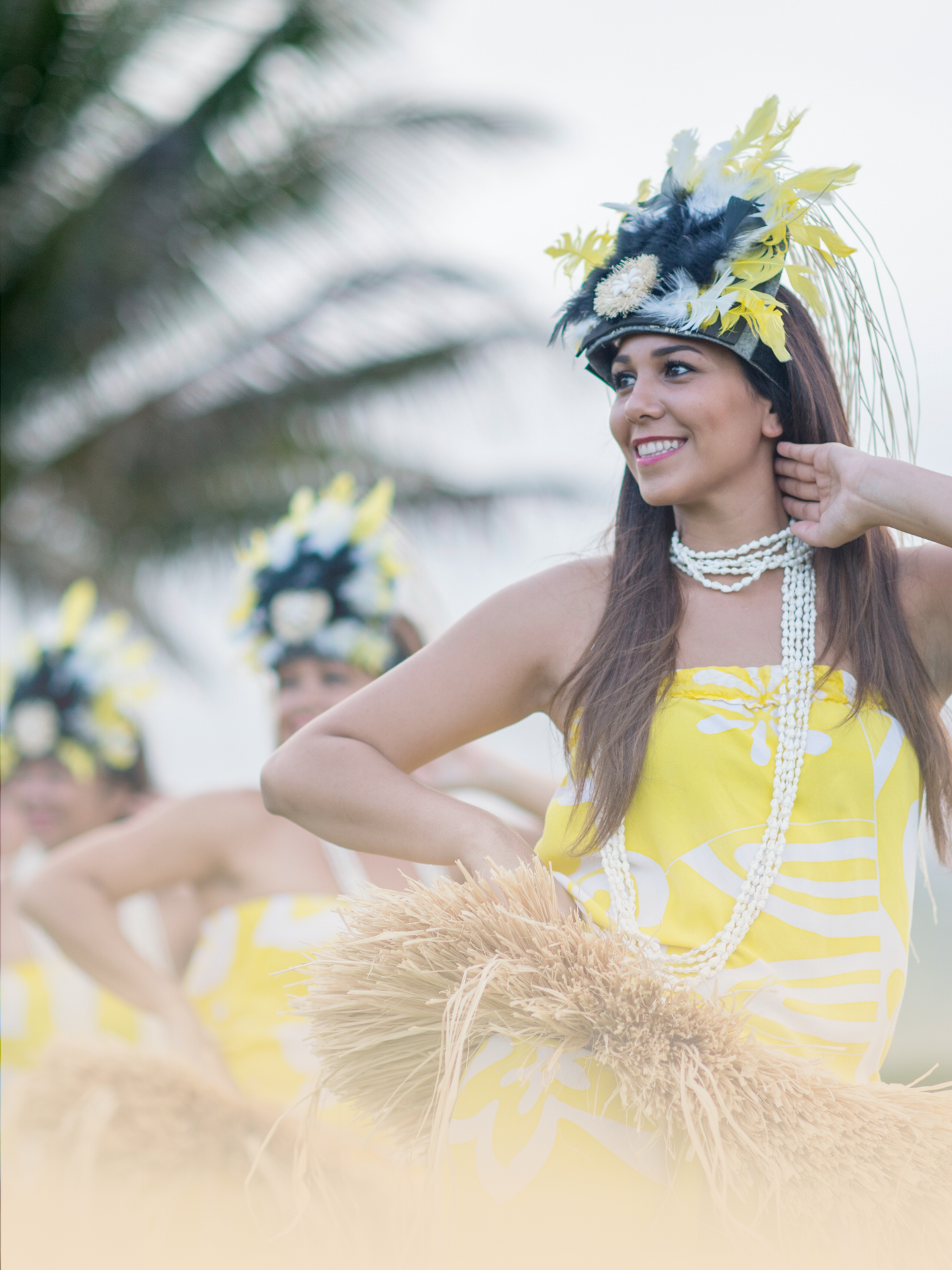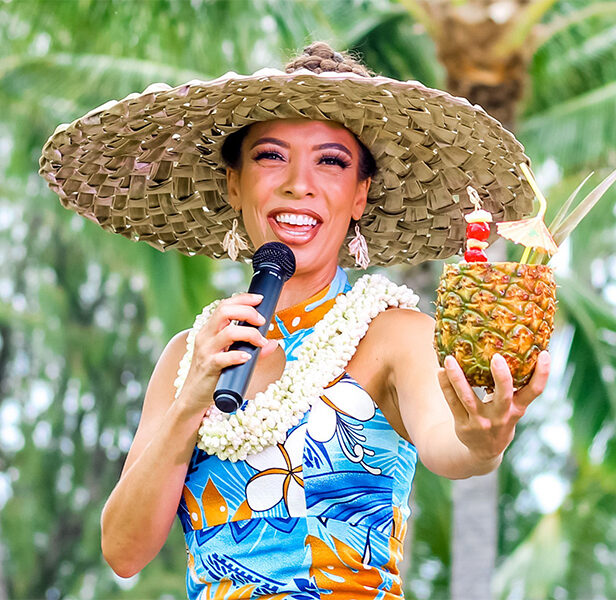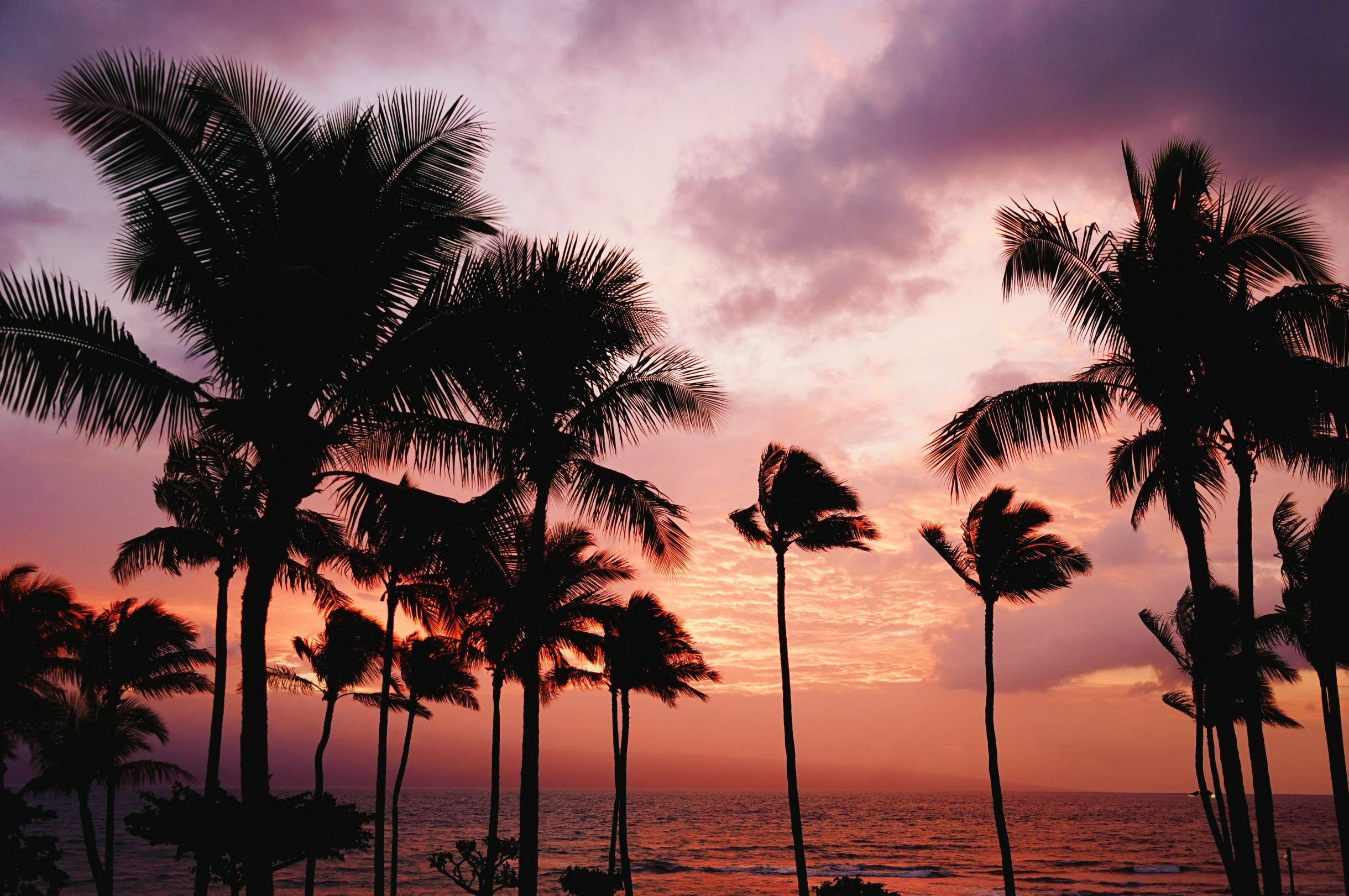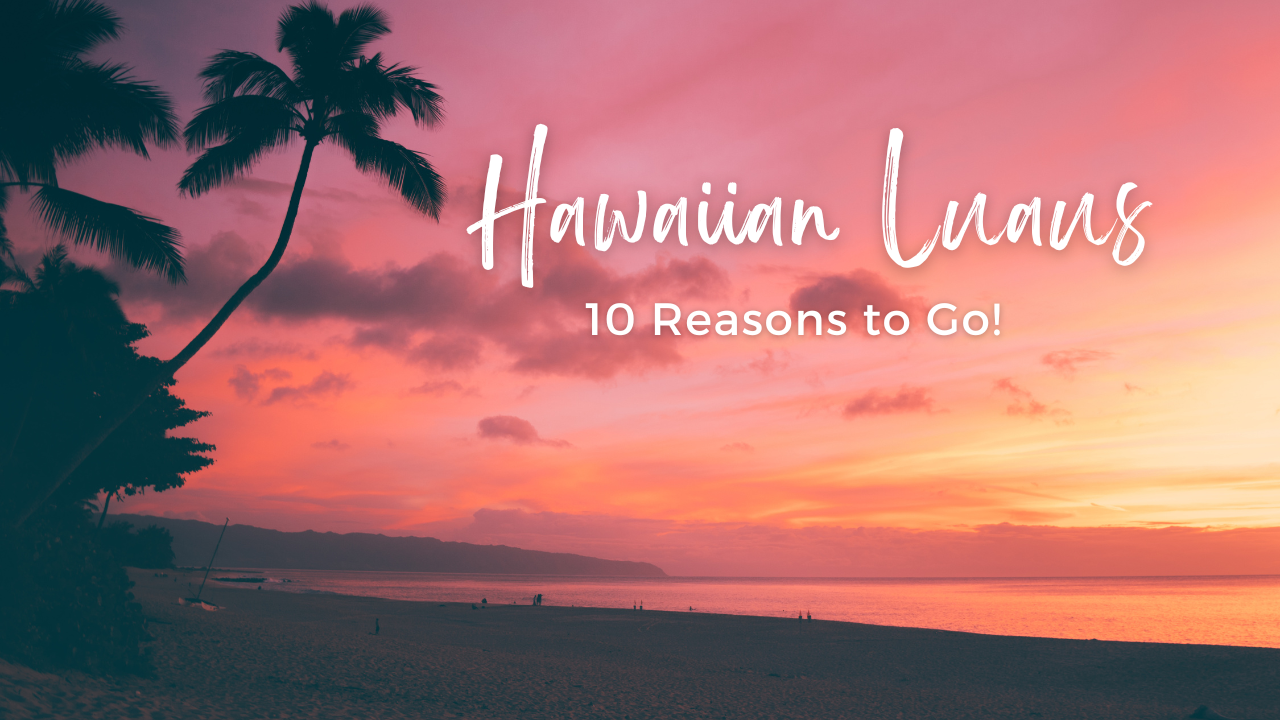How to Find the Best Luaus on Oahu
by Suzanne G., Last Updated January 28, 2024

What are the best luaus on Oahu?
My answer to this question is always, “That depends.” It’s just not an easy question to answer without knowing more about you. What you’re looking for in a luau? There just aren’t any one-size-fits-all options that will be the “best luaus” for everyone.
Sure, everyone wants to have a great time. Everyone wants a luau to feel authentic. Everyone wants to end the night feeling like their time and money was well spent. But, what it takes to achieve that “best luau” feeling is going to be different for everyone.
There are a lot of commercial luaus in Hawaii. If you look through past guest reviews, you’ll find that almost all of them are equally loved by most guests. Likewise, they are all passionately hated by a few individuals. They’re all great in their ways, but none of them are perfect.
Instead of searching for the “best luaus”, let’s figure out what luaus are best for you. Here’s how to do that.
Step 1: Narrow down your choices by what’s logistically possible
Use the process of elimination, simplify, and then research. Nothing is worse than finding a luau you love only to discover that they’re sold out or closed. Some luaus just won’t fit into your itinerary no matter how hard you try.
Once you’ve narrowed down your list of options significantly, then it’s time to weigh the pros and cons. Once you know what luaus are doable then you can which are the best luaus on Oahu for you. (Unless you want to read the reviews of every luau in Hawaii, of course.) Using tools like our comparison chart can help, but here are some things to consider first:
Availability
- Most venues only operate a few nights a week.
- The most popular luaus sell out far in advance, especially during peak seasons (holidays, spring break, and summer).
- If your trip is last-minute (or you’re just a procrastinator), this is going to limit your choices.
- If you wait too long to book you’ll have to settle for whatever is available and you may not be satisfied with the outcome.
Timing
- Some luaus are short and sweet, (three hours max) while some can take up your whole day.
- A shorter luau will be easier to coordinate with your daytime activities and allow you to maximize your time.
- Longer luaus give you a chance to explore more of the island and usually have more cultural activities.
- It just depends on what you want to see and experience and how much time you have available.
Location
- Choosing a luau that is within walking distance of your hotel will save time and travel expenses.
- The smaller, cheaper venues that have a prettier view, and may feel a bit more authentic usually require a drive.
- Luaus near the resorts tend to feel more touristy, but they also tend to be more consistent and better organized.
- The bigger, flashier luau shows that are designed to keep audiences entertained are usually found in town.
Transportation
- There are a few walkable luaus in Waikiki and downtown Honolulu.
- Most out-of-town venues provide ground transportation for an additional fee.
- The Luau shuttles are convenient, safe, and reliable, and run about $20-$40/person.
- Taxis and rideshares are a great option if you are staying close to Waikiki and Honolulu.
- If you drive yourself expect high parking fees and allow for extra travel time. Be sure to have a designated driver.
Setting
- Everyone dreams of a luau on the beach, but you probably won’t find one.
- You’ll find luaus in almost every other type of setting you could imagine.
- Most luaus are outdoors, with or without protection from the elements, and some offer stunning views.
- Postcard-worthy views and perfect weather aren’t guaranteed, bad weather and cancellations can happen.
- Indoor venues and luaus held under tents or pavilions are more weather-proof (and cancel-proof) than others.
- You’ll have to decide for yourself if an unobstructed view is worth the risk. (FYI: Rainy season runs from Nov.- March)
Size
- Luau seating capacities can range from 30 guests to over 1,000 people.
- Most luaus are set on a flat grassy (astroturf) area where tables surround a slightly elevated stage.
- The size of the gathering and where you are seated can have a huge impact on your overall experience.
- Some venues can accommodate a large crowd comfortably, while others can feel crowded and cramped.
- All luaus offer tiered seating packages, premier seating is usually closest to the stage and guests get to check in and eat first. Upgraded packages may have added perks such as additional drink tickets, free souvenir photos, or a better-quality lei.
Cost
- Larger venues in resort areas can offer a lower ticket price, but you’ll have to decide for yourself if it is worth it.
- Luau tickets may include free drinks, leis, free parking, or free admission to the surrounding park they are in.
- Comparing apples to oranges while trying to determine which luau is the best value can be difficult and tedious.
- Having a price range in mind, as opposed to sticking to the bottom line, will save you some time and headaches.
Special Considerations
- All venues do their best to accommodate special needs, some are better suited than others.
- You’ll find sample menus, schedules, detailed descriptions, accessibility information, and much more on the luau description pages.
- There are several helpful blog posts to help you determine the best luaus for these issues and similar concerns. (Use the search function to find past articles on the topics of most interest to you).
Now, how to find the best luau? Once you’ve used the process of elimination to narrow down your choices you can find the luau that is going to work best for you. Hopefully, by now you’ve got a much shorter list, and you’re ready to make comparisons based on quality, past guest reviews, and all the little quirks that make each venue special. Now that you’ve narrowed down your list, it is time to find your best luaus on Oahu.
Step 2: Know what’s a good fit (and what isn’t).
Do you want to be educated or entertained? While most luaus try to blend cultural education with entertainment value, some naturally lean a bit more in one direction than others. Those that lean heavily towards cultural education are often smaller and feel more intimate and authentic but also tend to have smaller shows. This might be a perfect fit for some guests while others may miss having a flashy, high-energy show with a great sound system and lighting.
Likewise, the luaus with the most highly produced shows may not offer many cultural activities. What would your ideal luau be like? With wanting to learn as much about Hawaiian culture as possible on one end of the scale, and just wanting to relax and be entertained on the other, where are you? Wherever you land on that spectrum, keep an eye out for luaus that are a close match.
Step 3: Get clear on your deal breakers.

You’ve probably been dreaming about a Hawaiian luau for months if not years. What does the vision look like? Are you sipping Mai Taais while watching the sunset? What’s the vibe? Is it a laid-back family-style luau or a fancy resort-style event? What makes your dream luau feel like a luau?
Knowing what details matter most to you is important, no matter how trivial they may seem to someone else.
You’re trying to find your best luau on Oahu, after all. Will you be disappointed if you don’t receive a fresh flower lei? What about fancy tropical cocktails with umbrellas in them? How about fire-knife dancing or having an in-ground oven onsite? These are all common luau elements, but not every single luau has them.
You don’t want to end up at a luau that doesn’t have that one thing that you’ve been looking forward to the most. So, what are your deal breakers or must-haves? Once you know, be on the lookout for these when skimming through the luau descriptions.
Step 4: Evaluate luaus in these three key areas to determine the best luau on Oahu – for you.
Luaus consist of three parts: the pre-dinner cultural activities, the luau dinner, and the evening show. Most venues excel in some areas (and less so in others) and a few venues do a decent job in all three areas. You’ll have to decide for yourself if all these areas matter to you and if you’re willing to make a trade-off. For example, having a so-so buffet but an amazing fire dance performance and plenty of fun, interesting pre-dinner activities.
1. Cultural Activities
Some venues pay close attention to cultural activities, offering a variety of games, demonstrations, and arts and crafts. Hands-on activities can be a great way to connect with Polynesian culture and have one-on-one conversations with the performers and artisans. These are the experiences and interactions that make a luau feel authentic and meaningful.
However, shorter luaus (and short-staffed luaus) often skimp in this area and some of the more touristy luaus may treat activity hour as just a convenient way to keep guests occupied until they get everyone checked in and situated. Depending on your priorities this might be just fine. For example, if the rest of your vacation is already filled with immersive cultural activities, then a short, entertaining luau might be the perfect fit for you.
2. Luau Dinner
Dinner is usually served buffet style. All luau buffets will offer some traditional Hawaiian foods, such as Kalua pork and poi, and a variety of multi-ethnic foods, plus a few kid-friendly options. Luau menus tend to be quite similar, but quality can vary quite a lot. All luau menus can be found in their product descriptions. Larger luaus tend to offer more menu variety, but smaller luaus tend to rate higher in quality.
3. Luau Show
The evening show is the highlight of the night, regardless of the venue. Most luau shows are a “tour through the Polynesian Islands”. This is a series of performances where each act features a Polynesian Island, along with its traditional style of dress, music, rhythms, and dance.
There are a few venues that will weave all of these elements into a cohesive story. The Polynesian Cultural Center is a good example of this, their original show features all the dances and costumes, yet tells a story (beginning, middle, end) There are also places like Rock-a-Hula that have completely non-traditional shows, complete with pop music and an Elvis Presley tribute artists.
Almost all luau shows end with a fire knife performance which is thrilling in any setting. Bigger venues will have over-the-top acts with more performers, which will make the performance even more dramatic. That said, some of the small venues can be equally thrilling even with only one or two fire knife dancers. Where else could you get to sit so close to the stage that you can feel the heat from the flames?
By now, you should have a better idea about what you want and don’t want in a luau. Having a realistic idea of what to expect and what to look out for will help you determine what is the best luau on Oahu – for you.
The tools on this website can help you compare luaus based on past guest reviews. You can compare prices and availability, and you can even see photos and videos of the venues and read detailed descriptions about any luaus that interest you – all right here! And once you’ve chosen your best luau on Oahu you can easily make a reservation right from this website too.





